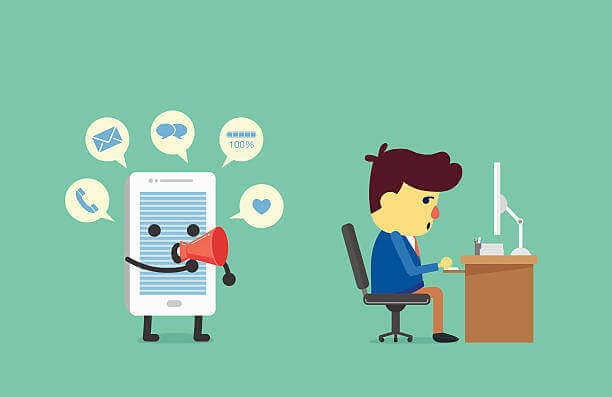
Our attention is fragmented and that’s hurting us
Corrina always felt great when she was the first to answer someone’s question on Slack. She loved bantering with friends on different WhatsApp groups and of course there was so much happening on Insta to keep up with.
Each time her phone pinged, she wondered if she could contribute to the conversation or help someone – because being in-the-know and helping others gave her life meaning. But her social media time was getting in the way of her work, it took forever to write a thoughtful email and she just couldn’t focus enough to finish that online course that would qualify her for a promotion.
Her sister and a friend both complained that she was always on her phone rather than being in the conversation with them when they were physically together. But those notifications were just so tempting!
We are constantly training our attention
We have been training ourselves to “fragment our attention”. Notifications from a ping, vibration or popup can grab our attention from our work or current conversation and demand attention – or at least it feels like it is a demand. We might focus on the new message only for a brief moment and it will still take time and mental energy to re-focus on the conversation we were having or the work we were doing before being interrupted by the notification. Every one of those shifts takes a bit of our brain’s energy and strengthens our habit of shifting attention, resulting in attention fragmentation and a reduced ability to focus.
But we need to re-gain control of our attention so we can place it where it will serve us the most. Attention is absolutely necessary if we want to:
- Learn something
- Accomplish work tasks
- Think through a complex situation and find an appropriate solution
- Have a meaningful conversation with someone we care about
- Read a book – or even a short article
But any of those activities will be difficult if not impossible without the ability to focus.
As long as we let our mind jump from ping to ping and we surf so many channels, we damage our ability to focus and concentrate.
But we do have a choice.
Our attention span is physiologically limited; the brain region dedicated to conscious attention is relatively small (compared to all the unconscious processes it needs space for) and we can technically only focus on one thing at a time and it takes time to focus on something. Attention is like a precious commodity that we need to spend carefully.
How do you use or squander your attention?
Think of your attention like a bank account – you have a certain amount of attention to spend during a day. Do you spend it wisely or squander it away?
Here are some questions to ask yourself to build your awareness and some helpful tips to help you develop attention and concentration.
How often do you shift attention in an hour or even in a minute?
Perhaps take a smaller task and mindfully note how often your attention is pulled away while you try to complete it.
How many notifications do you have on?
Try reducing these and switch them off when you are in a conversation or when you need to accomplish a task.
How many conversations do you have going on at one time?
The joy you get from these conversations is short-lived. Consider joining only a couple of these digital conversations and instead have more in-depth conversations with people you care about – you will be more satisfied in the long-run.
How many digital communication channels do you have?
If possible, make some inactive, especially if they are not relevant in the moment.
Whose messages or which channels do you prioritise?
Try making them task relevant for the time allocated to the specific task.
How many demands are vying for your attention?
Creating awarenessof these demands can help classify their importance.
Build your capacity
Focusing your attention and building your ability to concentrate takes practise – but you can develop this capacity if you want to.
- Try reading a book for 30 minutes without reaching for your phone. Start with 5 minutes at a time if that feels like a challenge.
- Learn to meditate – start with a couple of minutes and work your way up to 10 or 30 minutes at a time.
- Go for a walk, leaving your phone at home.
- Try mindful eating and eat your meals without a device nearby.
- Sit for a few minutes and stare at clouds or “people watch” without checking your phone.
- Generally slow down and give yourself time to think and feel.
As you practise focusing on something and sticking to it, you will expand your ability to concentrate and to choose where to place your attention – it’s like spending your budget wisely. We do not go into a restaurant and order everything on the menu, we make a selection and perhaps we take note of something we can try on a return visit, some good things we have to wait for.
Executive Coaching

To help you or your leaders to focus your attention, our coaching can help. Coaching is known to be a great tool when you want to change behaviour, create structures and get things done.
more info